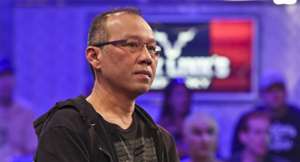Malaysian Cabinet Official Explains Statement in Paul Phua Case
Disputed allegations regarding accused sports betting operator Paul Phua’s association with Asian organized crime have highlighted an interesting week of developments in the high-profile case involving an alleged online gambling operation run from private Caesars Palace villas last summer. Among the recent revelations from Asian news outlets: Phua’s reported obtainment of a diplomatic passport from San Marino for use in international travel.
In the latest series of events, Phua’s powerful Las Vegas defense attorneys have submitted, then withdrawn, a letter written by a Malaysian cabinet minister disagreeing with a DOJ assertion included in the original press release on the case that Phua (proper name Wei Seng Phua) was a prominent member of an Asian organized crime group, the 14K Triad.
 In recent days, several South Asian Malaysian news outlets reported on the letter, written by Malaysia’s Minister of Home Affairs, Dr. Ahmad Zahid Ahmidi, which indirectly protested the 14K Triad claim made against Phua. News of the letter from Ahmidi to the FBI was first broken in a feature story published by the South China Morning Post, which quoted Ahmidi extensively from the letter, which was marked as private and confidential. (FlushDraw has obtained a copy of this letter but has not published it as of this time.)
In recent days, several South Asian Malaysian news outlets reported on the letter, written by Malaysia’s Minister of Home Affairs, Dr. Ahmad Zahid Ahmidi, which indirectly protested the 14K Triad claim made against Phua. News of the letter from Ahmidi to the FBI was first broken in a feature story published by the South China Morning Post, which quoted Ahmidi extensively from the letter, which was marked as private and confidential. (FlushDraw has obtained a copy of this letter but has not published it as of this time.)
Excerpts taken from the SCMP story have since been published widely in Malaysian and other Pacific-rim outlets. According to multiple reports, Dr. Ahmidi disputed the claims made against Phua, noting that the reference made to Phua was derived from an informal, six-year-old trading of information done between an unnamed Royal Malaysian Police member and an FBI agent working in Asia. The single statement, presented as fact by the DOJ, was challenged by Zahidi, who also noted, according to the SCMP feature and other reports, that Phua had allegedly provided information to Malaysia’s government on important “matters of national security.”
From there, the latest series of events turned even more strange. Zahidi’s letter to the FBI was written on December 18th, allegedly at the behest of at least one of Phua’s defense attorneys, though not necessarily those representing he and his son, Wei Kit “Darren” Phua, in the Caesars Palace sports betting matter. The Phuas have also retained Malaysian legal representation.
Nonetheless, on December 28th, the Zahidi letter was introduced to the case by the three main attorneys representing the Phuas, David Chesnoff, Richaird Schonfeld and Thomas Goldstein. Then, only hours later, the letter was immediately withdrawn from the case’s docket by the same attorneys. The withdrawal came following the filing of an objection by DOJ prosecutors, who noted the case record remains closed.
Meanwhile, the fallout from the initial publication of the Zahidi letter continued in Asia. Zahidi himself was forced to backtrack over the weekend from statements allegedly made in the officially unpublished letter, though the extent to which it may have been privately distributed to Asian media outlets remains unclear.
In this Malaysian Insider report, for example, the quick withdrawal of the Zahidi letter from the case by the Phuas’ defense attorneys is detailed, including more excerpts from court filings. And, Paul Phua’s Malaysian attorney, Tan Sri Muhammad Shafee Abdullah, held a press conference in which he declared that Zahidi’s letter was not necessarily a defense of Phua, but merely a correction or clarification offered in response to a direct request for information.
Whether or not Zahidi felt it was politically expedient to request such a buffer was not explored in any of the latest stories, which run the gamut in their portrayal of Phua — including the Malaysian Insider’s description of him as an “underworld kingpin.”
The extent to which various portraits of Paul Phua have emerged in recent weeks help illustrate that neither American investigators and prosecutors nor Phua’s high-profile defense attorneys may be playing fair. Both sides appear to have engaged in extensive media manipulation to date.
Besides the unsubstantiated 14K Triad charge lobbed at Phua, the DOJ’s case against Phua and his son remains under severe legal challenges due both to the unethical and possibly illegal tactics used to gather evidence and extract statements. The Phuas’ defense attorneys continue to seek the suppression of evidence regarding the FBI’s underhanded tactics, which allegedly include both a Fourth Amendment-violating ruse to gain access to the Caesars Palace villas, plus an alleged failure to read Miranda rights to the Phuas.
Meanwhile, the latest SCMP coverage reveals a detail not admitted to publicly earlier, and connected to Phua’s earlier arrest on similar charges in Macau. Paul Phua has, if the reports are true, purchased or otherwise acquired a diplomatic passport from the tiny European principality of San Marino.
Phua, according the SCMP features, is San Marino’s ambassador to Montenegro, and used that passport after posting bail in Macau to fly via his private jet to the United States in June, where authorities allege he quickly restarted his interrupted online-gambling business.
Given that Paul Phua is a Malaysian national and assuming he doesn’t suffer from outsized, Bilzerianesque narcissism, the obtainment and use of the diplomatic passport could be deemed dubious at best. The latest reports due offer some credibility to claims given privately to this writer by someone with direct knowledge of the case, that Paul Phua was not in fact deported from Macau, as was reported extensively in Malaysian news outlets last summer.
There’s little way to predict what will happen next in this unusual, high-profile case, which pits one of the world’s most well-connected and highest-stakes gamblers against the prosecutorial might of the United States.




















COMMENTS